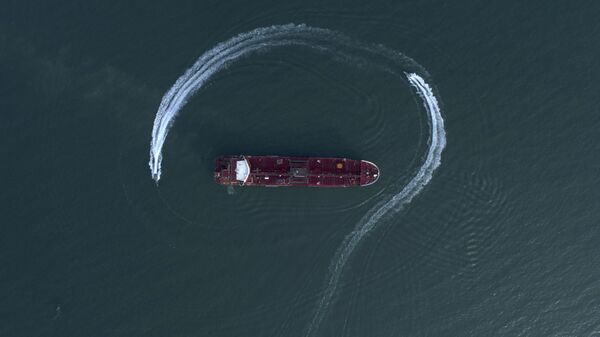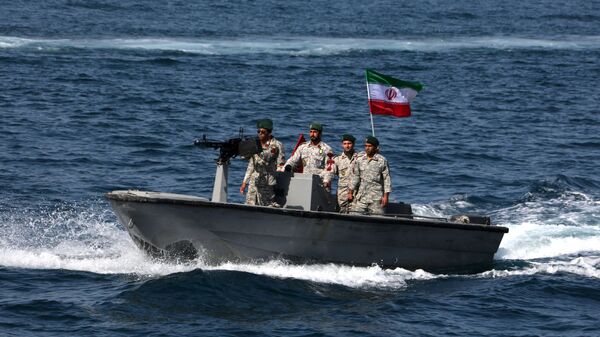Iranian coast guards have seized a ship purportedly carrying nearly 284,000 litres of smuggled diesel in the Persian Gulf and detained its 12 Filipino crew members, ISNA news agency reported.
Over the past three months, Iran has detained three commercial vessels in the Strait of Hormuz, the strategic waterway linking Middle East crude oil producers to key world markets, over alleged maritime violations.
The best-known of these instances happened on 19 July, when the IRGC seized a British-flagged oil tanker, the Stena Impero, accusing it of violating maritime rules, ignoring warnings from the military, turning off its positioning device, and colliding with an Iranian fishing boat. At the time, Tehran clarified that the detention hadn't been made in retaliation for the detention of the Iranian-flagged Grace-1 oil supertanker by Gibraltar's authorities, assisted by UK Royal Marines, earlier that month.
Iran has also detained a Panama-flagged tanker and what is believed to be an Iraqi tanker for allegedly smuggling Iranian fuel to foreign customers. Panama confirmed that its ship was engaged in unlawful acts and withdrew its registration, while Iraq reportedly denied ties to the other detained vessel.
Tensions have been running high in the Persian Gulf since the US deployed the USS Abraham Lincoln aircraft carrier strike group and a bomber task force to the Middle East in May, in what National Security Adviser John Bolton described as a "clear and unmistakable" message to Iran that any attack on American interests or those of its allies would be met with "unrelenting force".

The US later proposed to put together an anti-Iran maritime coalition in the aftermath of a spate of "sabotage attacks" on oil tankers in the Gulf region.
The first incident took place in May when four oil tankers — two Saudi, one Emirati, and one Norwegian — were allegedly targeted in the UAE's waters, while the second episode occurred the following month, when two other vessels — one Norwegian and one Japanese — were supposedly attacked in the Gulf of Oman. The purported assaults were immediately blamed on Tehran by Washington and its allies, while the Islamic Republic strongly denied its involvement and urged the US to put an end to "false flag" operations.


